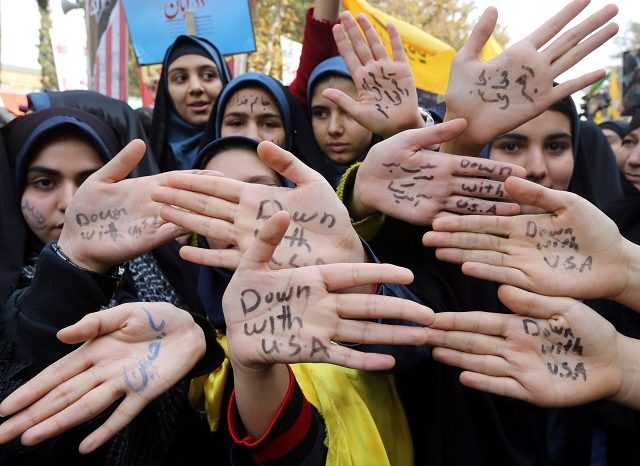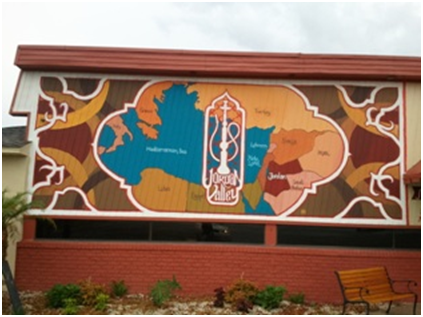Iran: Playing With Diplomacy
As the latest deadline in the international negotiations with Iran expires today, millions of Iranians are on the streets. They are not marching because of the talks, nor are they marching because it is the last Friday of Ramadan. They are marching because this latest ‘final’ day of negotiations is also ‘Al-Quds Day’ and thus an annual opportunity – inaugurated by the late Ayatollah Khomeini – to take to the streets and chant ‘Death to America’ and ‘Death to Israel.’
Back in Geneva, America’s negotiating team are presumably immune to the import of such occasions. A couple of weeks ago, when the Iranian Parliament decried the idea of international access to Iranian military and nuclear sites, the Parliamentary session ended with representatives on the floor chanting ‘Death to America’. In many ways this goes to the heart of the fallacy that is happening in Geneva. Because the American administration seems to see the Iranian regime as an entity that is open to change; one that desires normalisation not as a short-term tactic but as a long-term wish. When this US administration looks to Tehran it does not see an illegitimate regime which survives on a diet of anti-Western hatred, but a plausible negotiating partner. Whatever it is that President Obama and Secretary Kerry think they see in the unsmiling faces of the Ayatollahs is something which is hard to see in Iran on this day of all days.
On Wednesday this week, The Henry Jackson Society held a panel event with experts on Iran – including Emanuele Ottolenghi – who considered this latest round of talks. One issue which arose was the question of the endless extensions to the Geneva talks. On and off, the P5+1 have been at this process for several years now. And yet every time there appears to be the presumption that, as the Iranians run down the talk’s deadlines again and again, a couple more days will solve it. Is it really likely, after years, that the problems will be solvable given another 48 hours? Or is it more likely that the Iranians are stalling?
This past week it appeared for a moment that the latest Iranian gambit was to demand a lifting of the UN arms embargo on Iran. In reality, this was probably no more than an attempt by the Iranians to split the European and the Americans from the Russians and Chinese. As the representatives of the international community go through another final round of talks, and attempts to schedule in the next final round as well, is there not another possibility here? Is it not in fact possible that the Iranians are in a position akin to that of Yasser Arafat at Camp David?
On that occasion it did not matter how long the Americans and Israelis kept at the negotiations for. It did not even matter that in the end the Israelis put more on the table than at any time before. What mattered was that Arafat never intended to sign a deal – not just not the deal in front of him, but any deal. It is the hope of the American representatives in Geneva that the Iranians desperately want a deal. But the deals they are considering keep offering them more and more and yet, they still don’t take them. Is it not possible that the millions of people marching through Iran today, rather than the negotiators in Geneva, are the ones who are really speaking on behalf of the regime?
FROM THE DIRECTOR’S DESK
 Like a slow motion train wreck, the Eurozone crisis sparked by Greece’s parlous position continues to command attention across the continent. Although in an extraordinary turnaround from the position unfolding earlier in the week – when the Greek people rejected an austerity deal designed to secure a third tranche of bailout funds – it now appears that their irresponsible leaders have reversed position and submitted a package to Greece’s creditors that is even tougher than that previously rejected, and which does not mention debt relief at this juncture.
Like a slow motion train wreck, the Eurozone crisis sparked by Greece’s parlous position continues to command attention across the continent. Although in an extraordinary turnaround from the position unfolding earlier in the week – when the Greek people rejected an austerity deal designed to secure a third tranche of bailout funds – it now appears that their irresponsible leaders have reversed position and submitted a package to Greece’s creditors that is even tougher than that previously rejected, and which does not mention debt relief at this juncture.
In this column last week, I suggested that Greece’s Prime Minister, Alexis Tsipras, was largely to blame for the situation of Greece careering towards Grexit through a series of political missteps. I think this view has been vindicated by a new development that has evidently pleased Eurozone leaders and the financial markets judging by their immediate positive reaction.
Having won his snap referendum by stoking up Greek nationalism and the sense of defiance that has been the hallmark of Greek resistance to overwhelming odds against them in the past, it remains to be seen how Tspiras is going to be able to sell one of the more remarkable political climbdowns of recent years to his people. He has evidently decided that the costs of a likely Grexit resulting from the seductive siren song of “an end to austerity and business as usual” are too high to bear. But having encouraged Greeks to support this idea, he will now have to convince them that there is no alternative to a negotiated deal.
While the beginning of the end – it does of course remain to be seen how any deal agreed will be implemented – of this saga should be welcomed, this has hardly been the EU’s, or Liberal Democracy’s, finest hour. The Eurozone has been exposed once again as a political project masquerading as an economic one, with no sense of how it will resolve this contradiction. And Liberal Democracy’s ideals have been shaken by the Greek Prime Minister’s abuse of a direct democratic referendum process that says more about his personal political needs than those of the nation, and which will now be reversed without the Greek people having any say in the final outcome. Let us hope Europeans can learn from this shambles or else many more tears will follow from where Greek ones have already been shed.
Dr Alan Mendoza is Executive Director of The Henry Jackson Society
Follow Alan on Twitter: @AlanMendoza
EDITORS NOTE: The featured image is of Iranian girls show their hands, marked with the words “Down with USA,” at a demonstration in Tehran.




